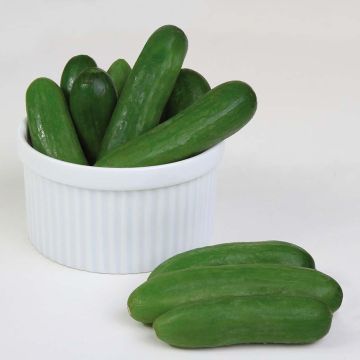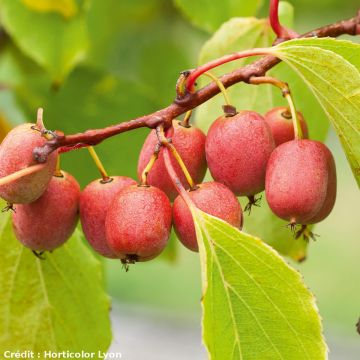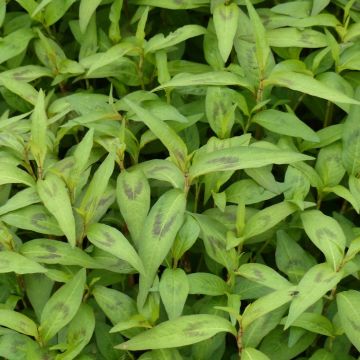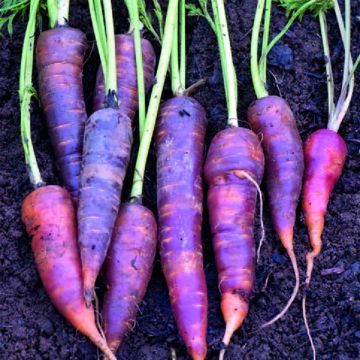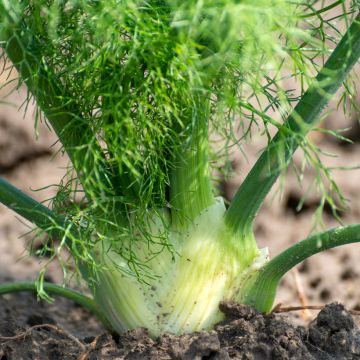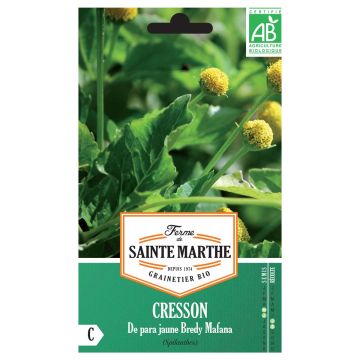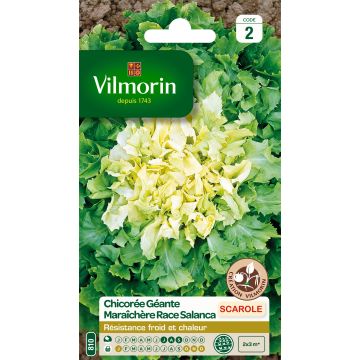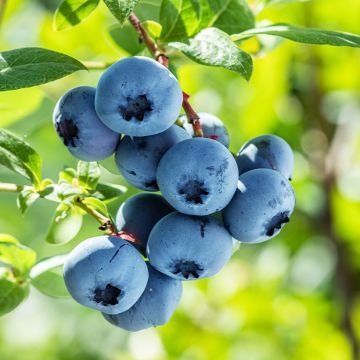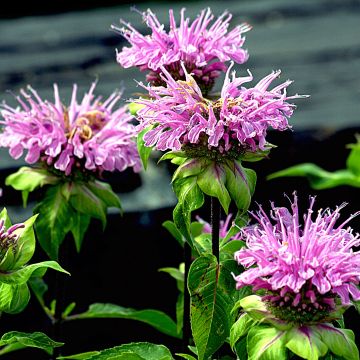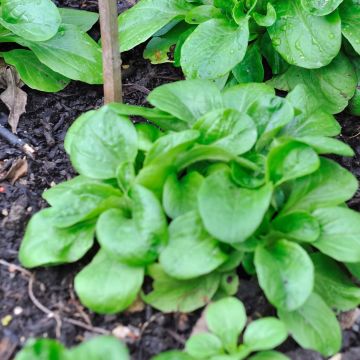Shipping country and language
Your country of residence may be:
Your country of residence is:
For a better user experience on our website, you can select:
Your shipping country:
-
Andorra
-
Austria
-
Belgium
-
Bulgaria
-
Canada
-
Chile
-
Croatia
-
Cyprus
-
Czechia
-
Denmark
-
Estonia
-
Finland
-
France
-
Germany
-
Greece
-
Hungary
-
Iceland
-
Ireland
-
Italy
-
Latvia
-
Lithuania
-
Luxembourg
-
Malta
-
Monaco
-
Netherlands
-
Poland
-
Portugal
-
Romania
-
Slovakia
-
Slovenia
-
Spain
-
Sweden
-
Switzerland
-
United Kingdom
We only deliver seed and bulb products to your country. If you add other products to your basket, they cannot be shipped.
Language:
-
French
-
German
-
Spanish
-
English
-
Italian
My Account
Hello
My wish lists
Log in / Register
Existing customer?
New customer?
Create an account to track your orders, access our customer service and, if you wish, make the most of our upcoming offers.
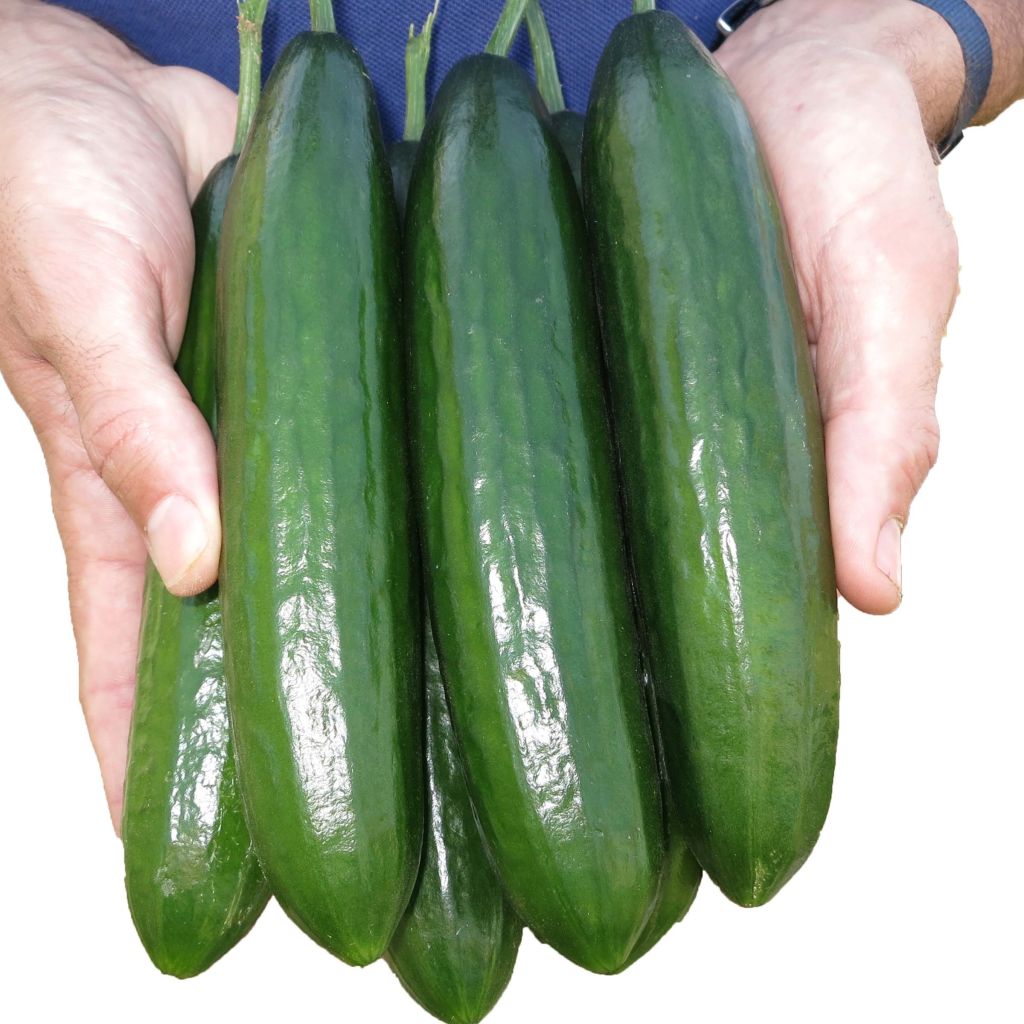

Grafted Cucumber Crokdelis F1 plants - Cucumis sativus
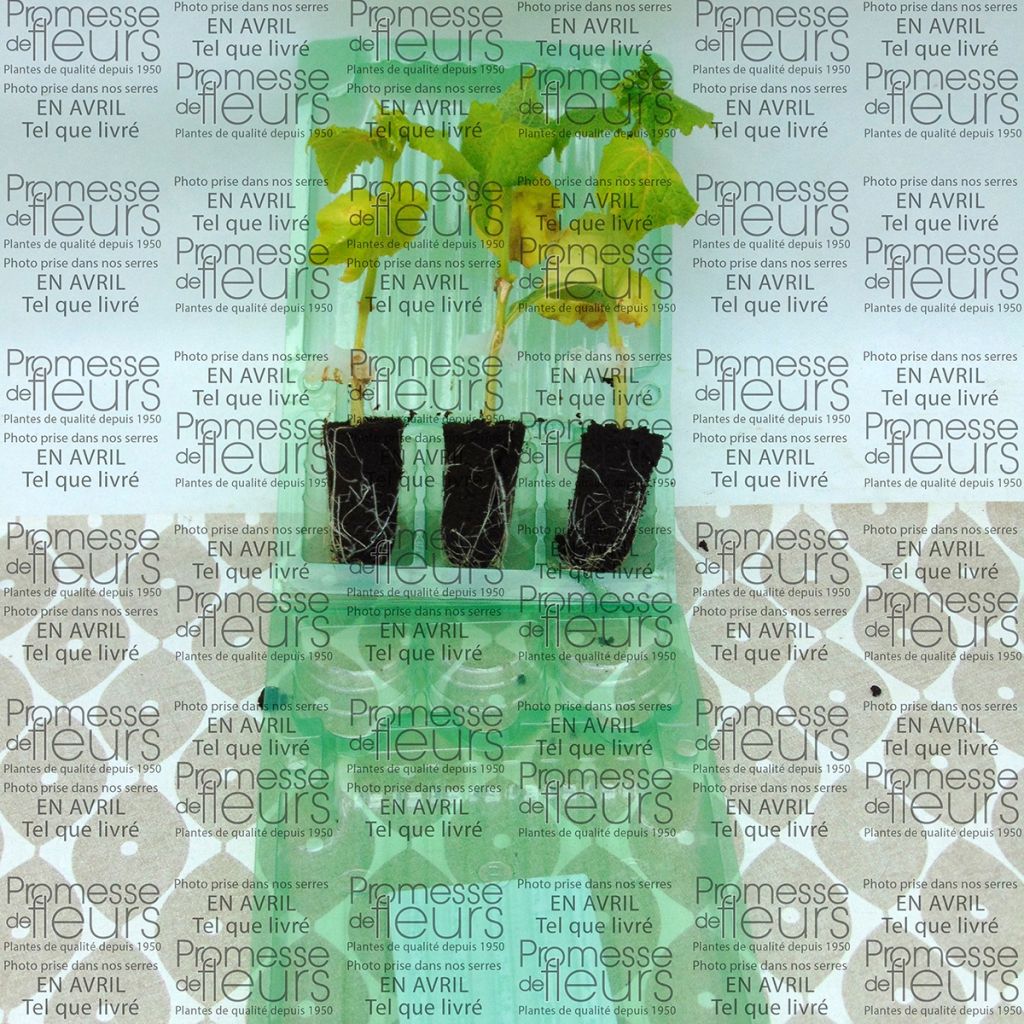

Grafted Cucumber Crokdelis F1 plants - Cucumis sativus
Grafted Cucumber Crokdelis F1 plants - Cucumis sativus
Cucumis sativus Crokdelis F1
Cucumber
Plants very damaged. I am disappointed.
Monique, 14/05/2023
Order in the next for dispatch today!
Dispatch by letter from €3.90.
Delivery charge from €5.90 Oversize package delivery charge from €6.90.
More information
This item is not available in your country.
Schedule delivery date,
and select date in basket
This plant carries a 6 months recovery warranty
More information
We guarantee the quality of our plants for a full growing cycle, and will replace at our expense any plant that fails to recover under normal climatic and planting conditions.
From €5.90 for pickup delivery and €6.90 for home delivery
Express home delivery from €8.90.
From €5.90 for pickup delivery and €6.90 for home delivery
Express home delivery from €8.90.
Description
The 'Crokdelis' F1 Grafted Cucumber (Smooth Cucumber) is a highly productive variety. Resistant to powdery mildew, it produces smooth cucumbers, 20 to 25 cm (8 to 10in) long, crispy and without bitterness. For small gardens, the cucumber can be trained on any type of mesh support, which also facilitates harvesting! The plug plants grafted with the long Cucumber 'Crokdelis' F1 can be planted from April to July, after the last frost, for a harvest from June to September. Grafting allows for a faster and more abundant harvest.
The grafting technique consists of giving a desired variety (here 'Crokdelis') the root system of another specially selected variety, called a rootstock. This rootstock is endowed with excellent resistance to soil parasites and diseases, which brings additional vigour to the plant: it is then more resistant to difficult external conditions (such as cold climates) and will yield significantly higher than a non-grafted plant. The fruiting of grafted plants starts earlier and lower on the main stem.
Cucumber, along with tomato, is one of the star vegetables of summer. Refreshing and low in calories, it can be enjoyed in a salad or on its own, with for example, a yogurt-based sauce with lemon and dill.
There are two main types of cucumbers: the "forcing" varieties, which are intended for greenhouse cultivation, and those that are suitable for outdoor cultivation. Cucumbers can be smooth or spiny, long or round. In addition to these classic varieties, there are also more "exotic" cucumbers like the Kenyan Cucumber or the Snake Cucumber, which are generally more demanding in terms of heat.
Cucumbers prefer light, loose, moist and humus-rich soils. They like sunny exposures and temperatures between 18 and 22°C (64.4 and 71.6°F). They are quite water-hungry vegetables.
Harvest: Cucumbers are harvested when they have reached their final size, before their colour turns yellow. Be careful: overripe fruits become bitter. Remember to harvest regularly to encourage the formation of new fruits. Harvesting usually takes place from June to September.
Storage: Cucumbers can be stored in the refrigerator for several days. To enjoy your harvest for longer, you can also preserve them in jars through lacto-fermentation or in vinegar.
Gardener's tip: Like all cucurbits, cucumber can be susceptible to powdery mildew: a white fuzz appears on the foliage. It is advisable to remove severely affected leaves and spray with wettable sulfur every 2 weeks. As a preventive measure, avoid watering the foliage and ensure good ventilation in your greenhouse if the cultivation is done under cover. Spraying with a horsetail decoction can also be done to strengthen foliage resistance.
Report an error about the product description
Harvest
Plant habit
Foliage
Other Cucumber plants
Planting and care
Cucumber is a fairly demanding vegetable that requires rich soil. It is advisable to add mature compost (about 3 kg per m²) in autumn, by scratching the soil to a depth of 5 cm (2in), after loosening the soil as for any vegetable cultivation. It prefers neutral soil (pH 7) but will also thrive in slightly acidic or alkaline soil (pH between 5.5 and 7.5).
In the vegetable garden, cucumbers appreciate the company of lettuces and beans. On the other hand, avoid placing them next to potatoes and tomatoes.
Planting:
First, grow the plug plants by transplanting them into trays or pots with a diameter of 8 to 13 cm (3 to 5in), filled with compost. Attention: When transplanting grafted plants, do not bury the graft point! Place the plants in a warm and bright location. Water regularly.
Planting in open ground is done from mid-May to June, when the soil is sufficiently warm and the risk of frost has passed. Space the plants 1m (3ft) apart in all directions if growing on a flat surface, or 1m (0 or 3ft) between rows and 50 cm (20in) within the row if training the plants. Dig a hole, place the plant with the graft point at ground level, and cover with fine soil. Firmly press down and water thoroughly.
Cucumber cultivation:
Cucumbers can be grown flat, but to save space and promote production, don't hesitate to use their climbing nature by training them: on a frame covered with wire mesh, inclined at a 45-degree (113°F) angle, they will provide beneficial shade for lettuces, or in a tipi to add some whimsy to the vegetable garden. When the plants are trained vertically, the cultivation is done on a single stem that is pinched at a maximum height of 2.5 m (8ft).
When grown flat, pinch above the second leaf to obtain two stems, which will be pinched above the 4th leaf. The final pruning involves cutting above a leaf for each formed fruit.
Plan for 2 or 3 hoeings and mulching at the beginning of summer to maintain soil moisture.
Cultivation
Care
Intended location
-
, onOrder confirmed
Reply from on Promesse de fleurs
Themed vegetable gardens
Haven't found what you were looking for?
Hardiness is the lowest winter temperature a plant can endure without suffering serious damage or even dying. However, hardiness is affected by location (a sheltered area, such as a patio), protection (winter cover) and soil type (hardiness is improved by well-drained soil).

Photo Sharing Terms & Conditions
In order to encourage gardeners to interact and share their experiences, Promesse de fleurs offers various media enabling content to be uploaded onto its Site - in particular via the ‘Photo sharing’ module.
The User agrees to refrain from:
- Posting any content that is illegal, prejudicial, insulting, racist, inciteful to hatred, revisionist, contrary to public decency, that infringes on privacy or on the privacy rights of third parties, in particular the publicity rights of persons and goods, intellectual property rights, or the right to privacy.
- Submitting content on behalf of a third party;
- Impersonate the identity of a third party and/or publish any personal information about a third party;
In general, the User undertakes to refrain from any unethical behaviour.
All Content (in particular text, comments, files, images, photos, videos, creative works, etc.), which may be subject to property or intellectual property rights, image or other private rights, shall remain the property of the User, subject to the limited rights granted by the terms of the licence granted by Promesse de fleurs as stated below. Users are at liberty to publish or not to publish such Content on the Site, notably via the ‘Photo Sharing’ facility, and accept that this Content shall be made public and freely accessible, notably on the Internet.
Users further acknowledge, undertake to have ,and guarantee that they hold all necessary rights and permissions to publish such material on the Site, in particular with regard to the legislation in force pertaining to any privacy, property, intellectual property, image, or contractual rights, or rights of any other nature. By publishing such Content on the Site, Users acknowledge accepting full liability as publishers of the Content within the meaning of the law, and grant Promesse de fleurs, free of charge, an inclusive, worldwide licence for the said Content for the entire duration of its publication, including all reproduction, representation, up/downloading, displaying, performing, transmission, and storage rights.
Users also grant permission for their name to be linked to the Content and accept that this link may not always be made available.
By engaging in posting material, Users consent to their Content becoming automatically accessible on the Internet, in particular on other sites and/or blogs and/or web pages of the Promesse de fleurs site, including in particular social pages and the Promesse de fleurs catalogue.
Users may secure the removal of entrusted content free of charge by issuing a simple request via our contact form.
The flowering period indicated on our website applies to countries and regions located in USDA zone 8 (France, the United Kingdom, Ireland, the Netherlands, etc.)
It will vary according to where you live:
- In zones 9 to 10 (Italy, Spain, Greece, etc.), flowering will occur about 2 to 4 weeks earlier.
- In zones 6 to 7 (Germany, Poland, Slovenia, and lower mountainous regions), flowering will be delayed by 2 to 3 weeks.
- In zone 5 (Central Europe, Scandinavia), blooming will be delayed by 3 to 5 weeks.
In temperate climates, pruning of spring-flowering shrubs (forsythia, spireas, etc.) should be done just after flowering.
Pruning of summer-flowering shrubs (Indian Lilac, Perovskia, etc.) can be done in winter or spring.
In cold regions as well as with frost-sensitive plants, avoid pruning too early when severe frosts may still occur.
The planting period indicated on our website applies to countries and regions located in USDA zone 8 (France, United Kingdom, Ireland, Netherlands).
It will vary according to where you live:
- In Mediterranean zones (Marseille, Madrid, Milan, etc.), autumn and winter are the best planting periods.
- In continental zones (Strasbourg, Munich, Vienna, etc.), delay planting by 2 to 3 weeks in spring and bring it forward by 2 to 4 weeks in autumn.
- In mountainous regions (the Alps, Pyrenees, Carpathians, etc.), it is best to plant in late spring (May-June) or late summer (August-September).
The harvesting period indicated on our website applies to countries and regions in USDA zone 8 (France, England, Ireland, the Netherlands).
In colder areas (Scandinavia, Poland, Austria...) fruit and vegetable harvests are likely to be delayed by 3-4 weeks.
In warmer areas (Italy, Spain, Greece, etc.), harvesting will probably take place earlier, depending on weather conditions.
The sowing periods indicated on our website apply to countries and regions within USDA Zone 8 (France, UK, Ireland, Netherlands).
In colder areas (Scandinavia, Poland, Austria...), delay any outdoor sowing by 3-4 weeks, or sow under glass.
In warmer climes (Italy, Spain, Greece, etc.), bring outdoor sowing forward by a few weeks.
